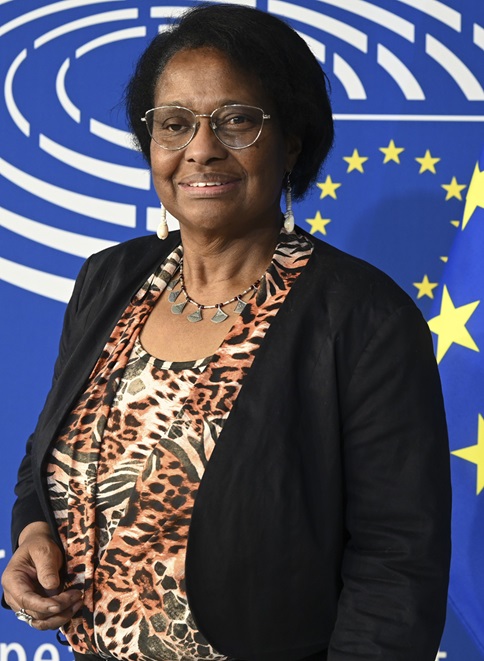There is an ongoing legislative process to legalise female genital mutilation in The Gambia. Dr Pierrette Herzberger-Fofana*, member of the European Parliament, writes on the position of the European MPs on the controversial move as well as on the concerns of African organisations in Germany should the harmful practice be legalised in The Gambia
The practice of female genital mutilation (FGM) has been banned in The Gambia since 2015 and laws provide for heavy fines and prison sentences for those who perform it on girls and women.
Since the ban on female circumcision, only two cases have been prosecuted, and the first conviction was only handed down in August 2023. Instead of implementing this law that protects women, as well as a series of comprehensive policies aimed at empowering women and girls to exercise their human rights and get an education, the Gambian parliament is now considering repealing it.
The Gambia 2024: Proposed Withdrawal of the Female Genital Mutilation
On 18 March 2024, the Gambian Parliament debated a proposal to repeal the national law prohibiting female genital mutilation (FGM). The bill to lift the ban has been referred to a parliamentary committee, meaning it will be reviewed for at least three months before being submitted to the Gambian parliament for debate and vote.

Forty-two of the MPs present voted in favour of the bill, which aims to remove the legal protection of millions of girls in the country, and four against.
If the law is passed, Gambia would be the first country in the world to lift the ban on FGM. This would set a dangerous precedent for the rollback of women’s rights and undermine Sustainable Development Goal 5 (SDGs), which aims to eradicate female genital mutilation worldwide by 2030.
EU Resolution: Withdrawal of the Anti-Female Genital Mutilation (FGM) Act in The Gambia
The European Parliament adopted a resolution on 25 April 2024 with a strong majority of 537 votes in favour, 1 against and 1 abstention and calls on the Gambian Parliament to stand up for women’s human rights and not pass the law.

In February 2020, we had already adopted a resolution in the European Parliament in favour of the abolition of genital mutilation in Europe.
In 2021, Ms Giffey, then German Federal Minister for Family Affairs, Senior Citizens, Women and Youth, officially presented the “Letter of Protection” to the European Parliament. She was our guest at our webinar on the occasion of the International Day of Zero Tolerance for Female Genital Mutilation on 6 February 2021.
The Letter of Protection

– Federal Government of the
Federal Republic of Germany
This letter of protection protects girls from the diaspora, from Europe when they travel to Africa, so that they are not going to be excised. This important document was prepared with the Ministry of Economic Cooperation and Development, the Ministry of Justice, the Ministry of Foreign Affairs and the Chancellery in cooperation with a non-governmental organization “Lessan” and other non-governmental organizations.
The Gambia and Female Genital Mutilation
As the UN Children’s Fund reported earlier this month, the number of women and girls who have undergone FGM worldwide has risen from 200 million eight years ago to 230 million. According to UNICEF, about 46 per cent of girls aged 14 and under in The Gambia have undergone genital mutilation. This percentage rises to 73% for girls and women aged 1 year.
Female genital mutilation violates the rights of women, it violates girls’ and women’s right to health and physical integrity. A European Parliament resolution would reaffirm the European Union’s strong commitment to the universal abolition of female genital mutilation.
Legalisation would be a violation of the Convention on All Forms of Discrimination against Childbirth (CEDAW), the Convention on the Rights of the Child and the African Convention on the Rights and Welfare of the Child, all of which The Gambia has ratified.
“Integra. The German Network for the Abolition of Female Genital Mutilation”
Many African organisations in Germany and Belgium, especially those of Gambian citizens who are fighting for the abolition of FGM, have called on us to be their spokesperson within the European Union.
As Honorary President of “Integra. The German Network for the Abolition of Female Genital Mutilation (Integra. Deutsches Netwerk für die Abschaffung der Genitalverstümmelung) African communities want to make their demands heard in the EU Parliament.
READ ALSO Gender equality as a precondition for democracy, by Pierrette Herzberger-Fofana
Indeed, many Gambian women fear that they will be cut when they travel to The Gambia during the summer school holidays this year, if the law comes into force and is enforced. This law would collide with the German letter of protection, which was supposed to protect them from female genital mutilation. It would no longer be of value.
We do not have the right to turn a deaf ear to the distress of thousands of young girls who fear for the physical integrity of their bodies. In a spirit of solidarity and collegiality, we would like to appeal to our colleagues in the National Assembly of The Gambia not to repeal such a law which is not justified by African culture or religion. Indeed, neither the Koran, nor the Torah, nor the Bible require that a girl or woman be mutilated.
* Dr Pierrette Herzberger-Fofana, MEP, is a Member of the European Parliament representing Germany on the platform of the Green party. She is also Vice-Chairwoman of the Committee on Development, Vice-President of the Delegation for Relations with the Pan-African Parliament and Co-President of the EU-ARDI Intergroup “Anti Racism and Diversity Intergroup”
 THE AFRICAN COURIER. Reporting Africa and its Diaspora! The African Courier is an international magazine published in Germany to report on Africa and the Diaspora African experience. The first issue of the bimonthly magazine appeared on the newsstands on 15 February 1998. The African Courier is a communication forum for European-African political, economic and cultural exchanges, and a voice for Africa in Europe.
THE AFRICAN COURIER. Reporting Africa and its Diaspora! The African Courier is an international magazine published in Germany to report on Africa and the Diaspora African experience. The first issue of the bimonthly magazine appeared on the newsstands on 15 February 1998. The African Courier is a communication forum for European-African political, economic and cultural exchanges, and a voice for Africa in Europe.




























